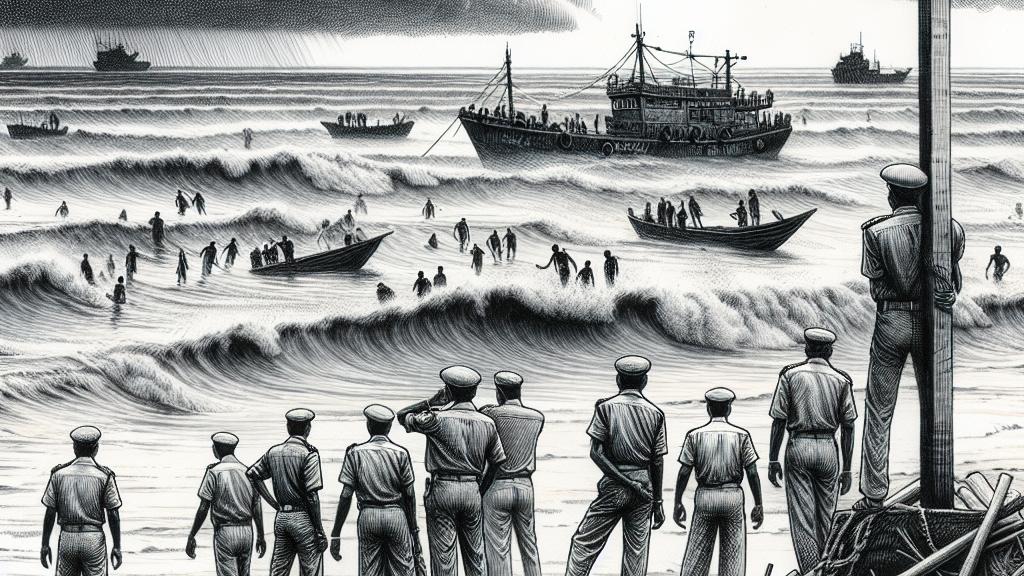Odisha on High Alert: Coast Guard Readies for Potential Influx Amid Bangladesh Turmoil!
Overview
- Odisha police have issued a coastal alert due to escalating unrest in Bangladesh.
- Fishermen are instructed to watch for suspicious foreign boats and report any sightings.
- Growing concerns about undocumented migrants seeking refuge in Odisha's coastal communities.

Understanding the Alert's Context
The unrest in Bangladesh has spiraled into violence following student protests against the government's job quota system, raising national security concerns in neighboring India, specifically in Odisha. As demonstrations escalate, the possibility of individuals fleeing the turmoil to seek safety in Indian territory has prompted the Odisha Police to issue an urgent alert along the coastline. Authorities have directed coastal staff, including fisherman and local police, to remain vigilant and promptly report any unusual activities or foreign vessels spotted in the waters. The historical context cannot be ignored; in previous years, influxes of Bangladeshi nationals occurred through maritime routes during times of instability, demonstrating the direct link between regional unrest and migration patterns.
Local Community Insights and Reactions
Coastal regions like Kendrapara and Jagatsinghpur have a significant Bengali-speaking population, which complicates the current scenario. Residents are torn between empathy for those fleeing violence and the practical concerns of public safety. With a potential rise in undocumented migrants, the local fishermen have been given heightened responsibilities to act as the first line of defense against unauthorized entries. They are now tasked with not only earning a livelihood but also playing a crucial role in national security by reporting any sightings of foreign vessels. Conversations in local communities reflect a blend of humanitarian concern and apprehension, emphasizing the need for balance between compassion for distressed migrants and the security of local inhabitants.
Strategic Implications for India's Coastal Security Framework
The turmoil in Bangladesh stresses the pressing need for a robust coastal security strategy in India. With a coastline stretching over 7,516 kilometers, Odisha is integral to not only safeguarding against illegal crossings but also ensuring maritime commerce remains uninterrupted. The Indian government has recognized the vulnerabilities highlighted by incidents like the 26/11 attacks, where terrorists exploited maritime routes, compelling a multi-agency strategy that incorporates the Indian Navy, Coast Guard, and local law enforcement. Exercises such as 'Sagar Kavach' foster readiness and strategic coordination among these agents to efficiently counter threats. Coastal security expands beyond mere monitoring; it involves strengthening community cooperation to foster a united front against potential risks while supporting the resilience of local ecosystems. Such diligence reinforces India’s stance not only as a responsible maritime power but also as a protective neighbor amid regional upheaval.

Loading...